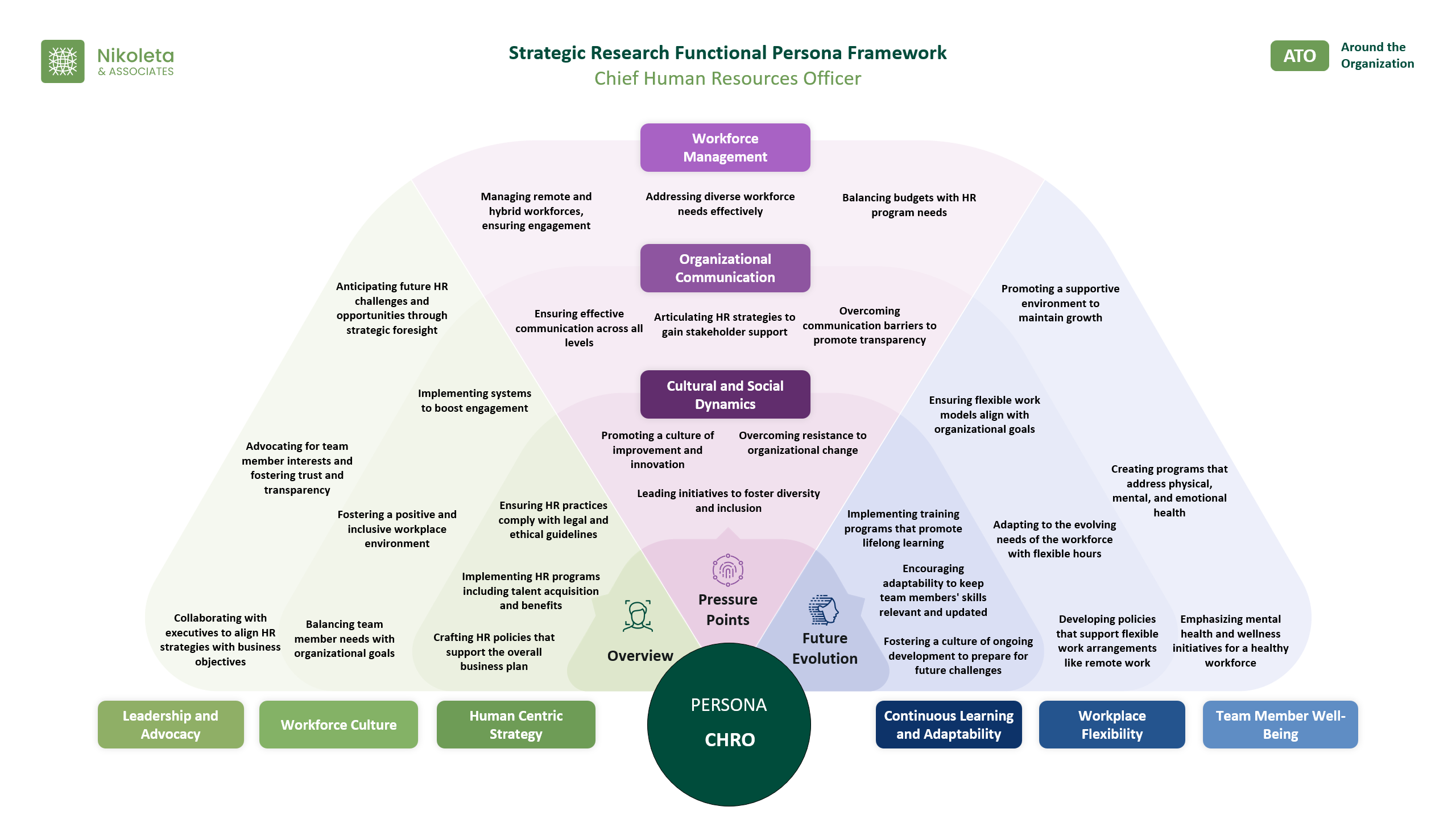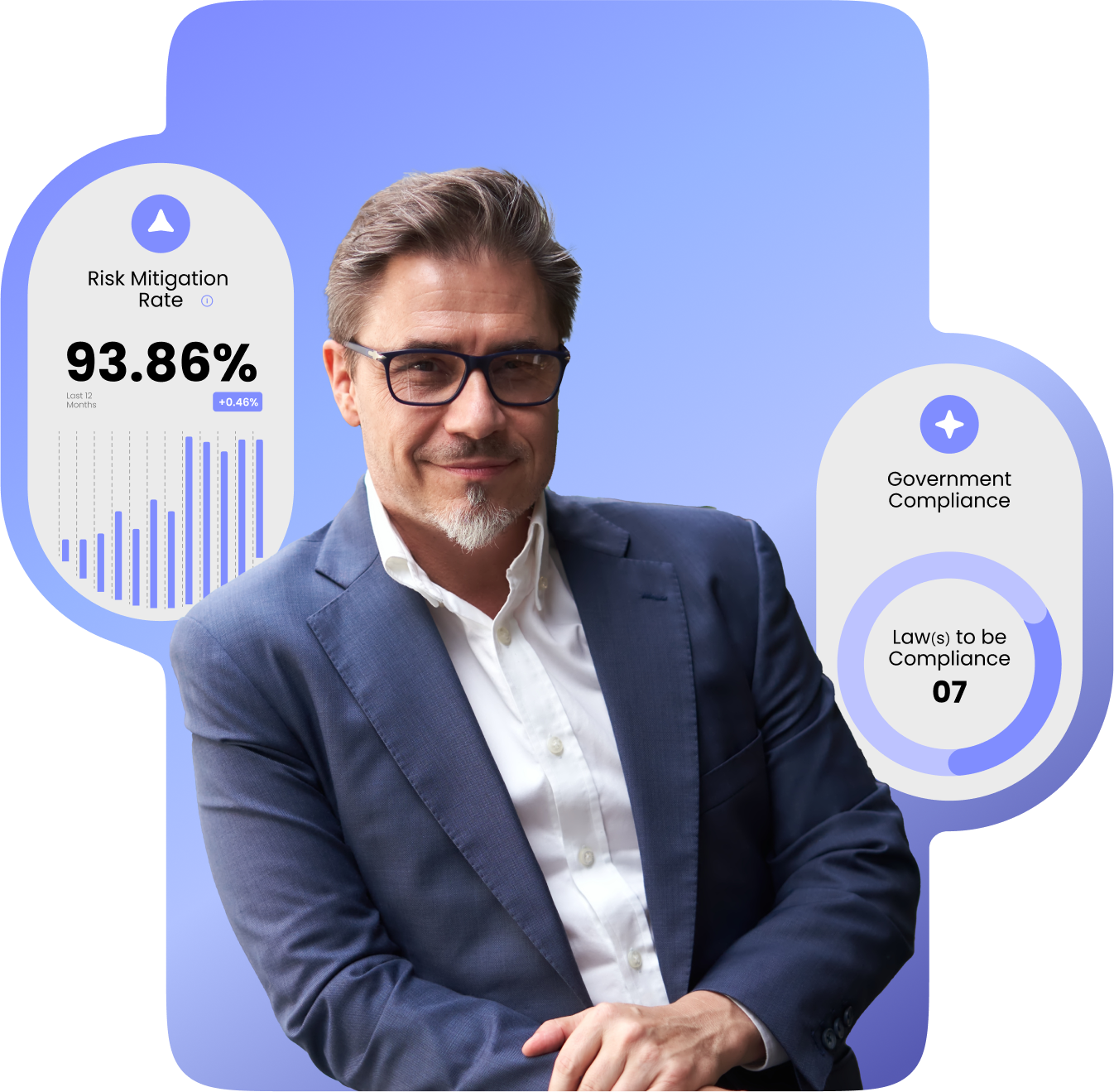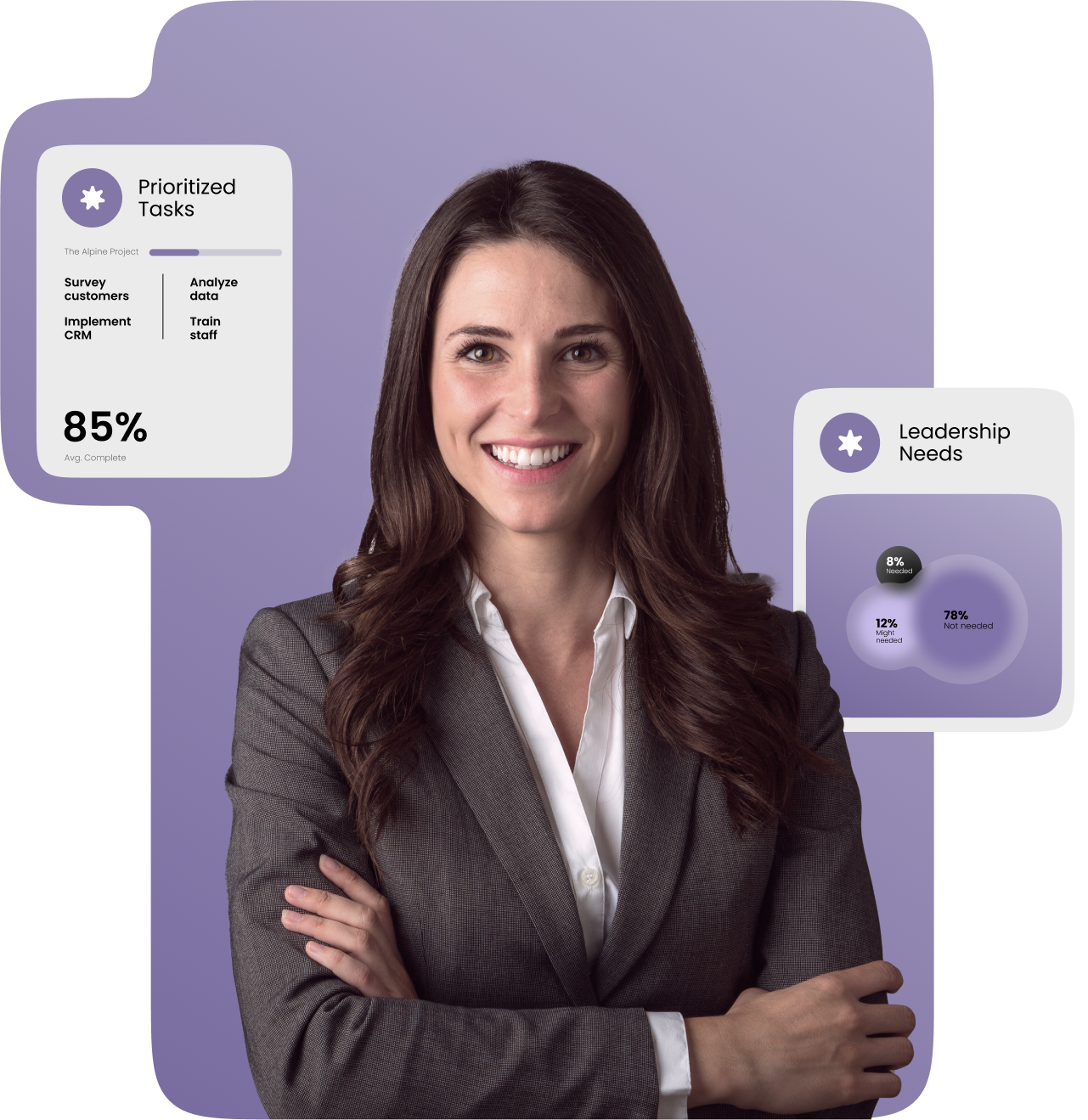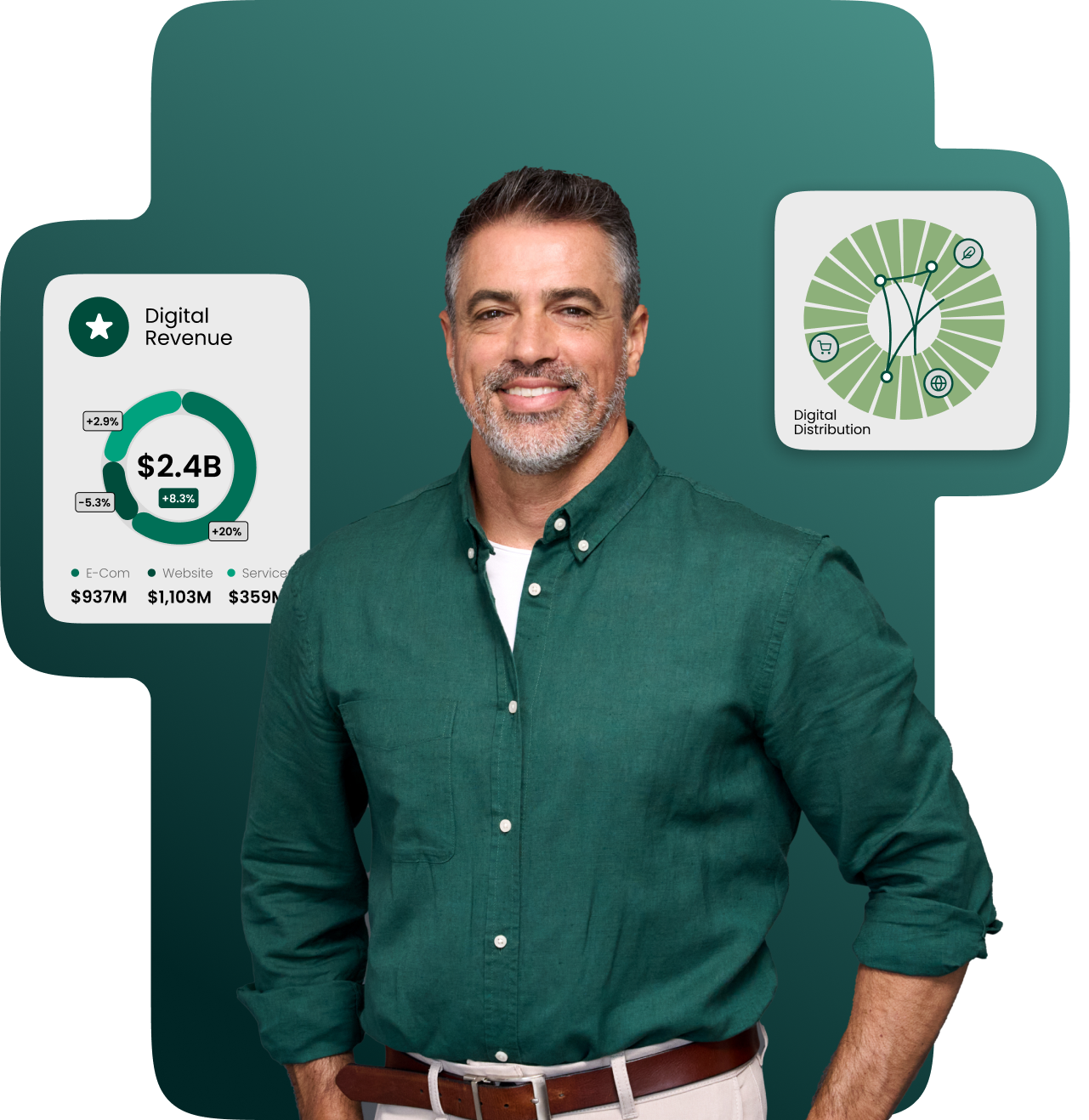Around the Organization (ATO)
Frameworks for Functional Role Clarity and Strategic Growth
Chief Human Resources Officer (CHRO) Persona Framework
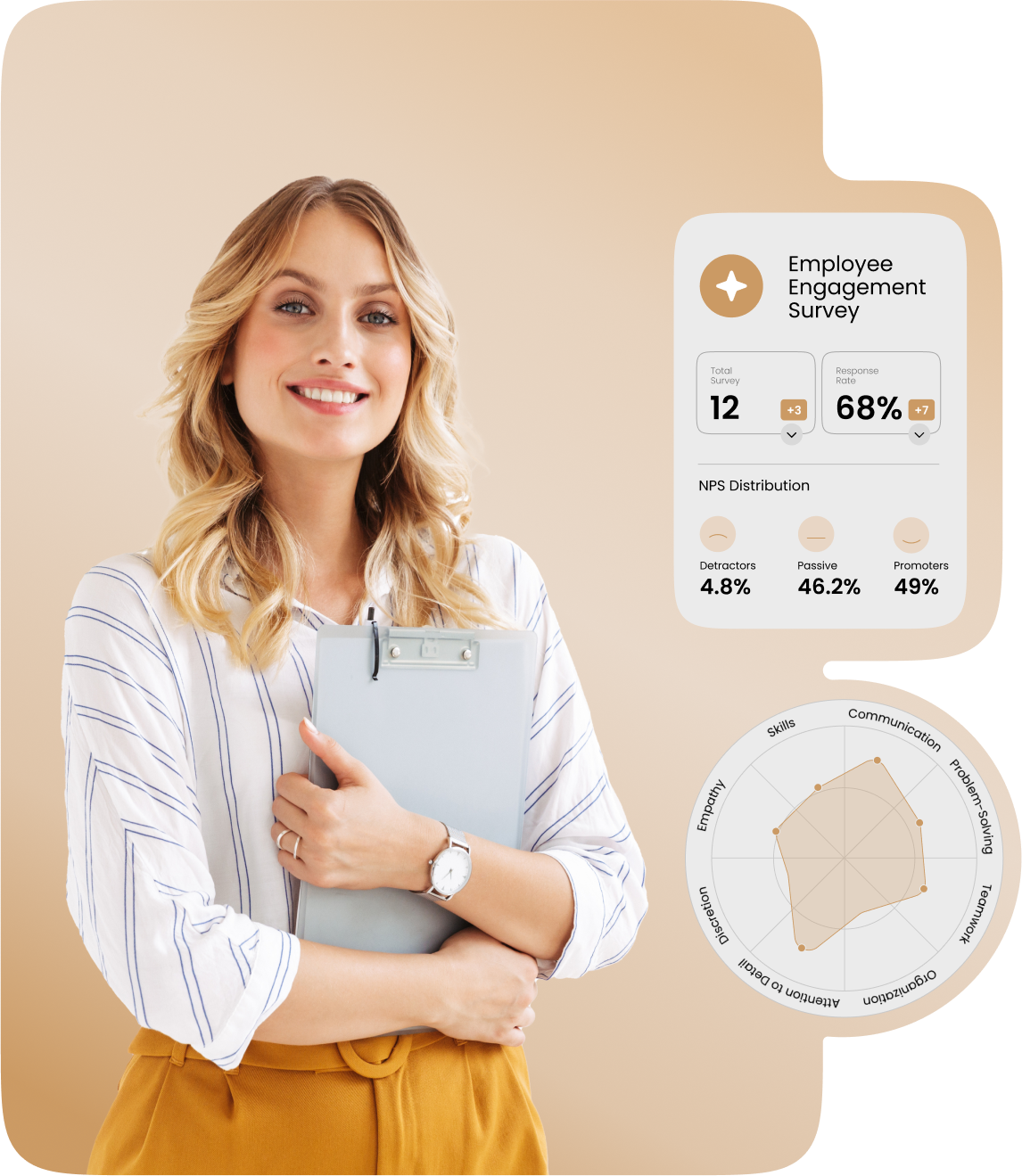
Welcome to the Chief Human Resources Officer (CHRO) segment of our Around the Organization (ATO) practice—an area in our Consulting and Capability function dedicated to exploring and capturing the essence of modern organizational roles. Dive into the unique characteristics, challenges, and future evolution of the CHRO role.
Learn how CHROs navigate the complexities of talent acquisition, development, and retention, fostering a high-performance culture that aligns with the organization’s strategic goals. Discover the critical role CHROs play in shaping organizational change, driving innovation, and ensuring employee engagement in a rapidly changing business environment.
The Framework
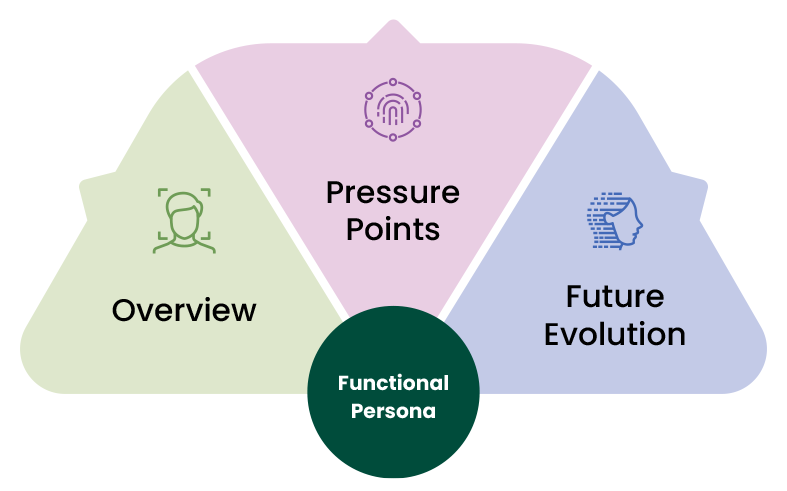
The overview takes a deeper dive into the functional persona by integrating a holistic perspective. This section highlights the unique characteristics, capabilities, and the central role that the functional persona plays within the organizational ecosystem.
The pressure points highlights the challenges and obstacles that individuals within the functional persona may encounter. The importance of the pressure points is aimed to provide guidance towards the overall wellbeing of the functional persona.
The future evolution considers the ever-evolving landscape of market trends and how they intersect with the trajectory of the functional persona. It does not only forecast, but also aims to prepare and shape the functional persona to the change.
Overview
The Chief Human Resource Officer (CHRO) is responsible in crafting and implementing HR strategies that supports human aspect in the overall business plan and organizational direction.
The CHRO plays a critical role in shaping the human resources policies, programs, and services, such as talent acquisition, team member benefits, compensation, and compliance with legal standards. They collaborate closely with the executive team to ensure that the organization’s talent aligns with its best interests. Advocating for team members, the CHRO strikes a balance between meeting workforce needs and achieving organizational goals. This role requires a strategic mindset to anticipate future HR challenges and opportunities. The CHRO must navigate the complexities of workforce management while fostering a positive organizational culture. They are responsible for implementing systems that enhance team member engagement. Their strategic foresight ensures the company remains competitive and adaptive to market changes.
Role Attributes
Leadership in Strategy: Aligning HR initiatives with business objectives
Team Member Advocacy: Representing team members’ interests and fostering a culture of trust and transparency within the organization
Talent Development: Managing the lifecycle of team member growth and retention
Organizational Culture: Promoting a positive and inclusive workplace environment
Compliance and Ethics: Ensuring that HR policies and practices comply with legal standards and ethical guidelines
Pressure Points
The CHRO encounters multifaceted challenges, balancing strategic goals with team member advocacy, and ensuring compliance with ever-changing regulations.
One of the main challenges for the CHRO is to align HR strategies with the broader organizational goals while maintaining a positive work environment. They must stay abreast of complex and evolving regulatory requirements, ensuring the organization remains compliant. Managing a diverse workforce with varying needs and expectations requires a nuanced approach. Resource allocation is another critical challenge, as the CHRO must balance limited budgets with the necessity for comprehensive HR programs. Ensuring effective communication across all levels of the organization is vital for cohesive operations. The CHRO also leads initiatives to foster diversity, equity, and inclusion, which can be challenging in changing social climates. Moreover, responding to dynamic changes in the labour market requires agility and forward-thinking strategies.
Common Pressure Points
Keeping up with complex legal standards and ensuring that all HR practices adhere to local, national, and international laws and regulations
Addressing the challenges of managing remote and hybrid workforces, ensuring engagement and connectivity
Prioritizing mental health and wellness initiatives to support a healthy and resilient workforce
Future Evolution
The CHRO’s role will adapt to drive strategic workforce planning and foster a resilient organizational culture among evolving workplace trends and advancing technology.
The role of the CHRO is becoming increasingly integrated with technological advancements, leveraging HR analytics and digital tools for informed decision-making and strategic planning. A key future aspect is fostering a culture of continuous learning and adaptability to prepare the workforce for future challenges. Emphasizing team member well-being and mental health will be crucial, as organizations recognize the importance of a healthy workforce. Flexible work arrangements, such as remote work and flexible hours, are becoming standard, requiring the CHRO to develop policies that support these trends. The CHRO will play a significant role in leading organizational transformations, ensuring that HR practices evolve to meet global trends and best practices. Additionally, the ability to navigate through crises and maintain organizational resilience will be a vital skill. Finally, promoting a proactive approach to individual development and career progression will help retain top talent.
Role Evolution Aspects
Promoting a culture of ongoing development and adaptability, ensuring team members have the skills needed for future challenges
Leveraging automation and artificial intelligence to streamline HR processes and improve efficiency
Implementing and managing flexible work arrangements, such as remote work and flexible hours, to meet the evolving needs of the workforce
The Role of Change in the
CHRO Functional Persona
The CHRO shapes the organization’s people strategy, ensuring the company can effectively respond to evolving workforce dynamics and organizational needs. This role demands a comprehensive understanding of both external labour market trends and internal team engagement drivers to craft policies that enhance organizational performance. The CHRO is responsible for not only envisioning the future of work but also equipping the organization to adapt to changes. This involves fostering a culture that values continuous learning, adaptability, and team member well-being, which are crucial for maintaining a resilient and competitive workforce in a rapidly changing world.
For CHROs, embracing strategic change is essential for enhancing organizational agility, improving team member engagement, and fostering a culture of innovation and inclusivity.
How CHROs Can Be Open to and Maintain Change
Foster a Culture of Innovation
Encourage innovative thinking and creative problem-solving within the HR team to adapt to new challenges and opportunities
Enhance Communication Channels
Utilize diverse communication platforms to ensure transparent and effective communication across all levels of the organization.
Build Strong Employer Branding
Enhance the organization’s reputation as an employer of choice to attract and retain top talent in a competitive market.
